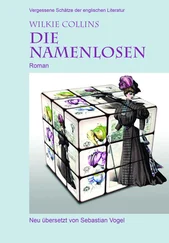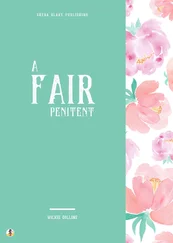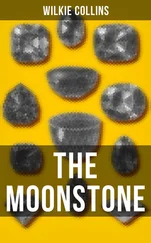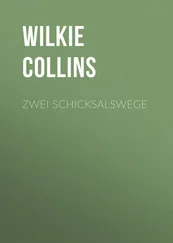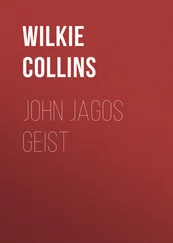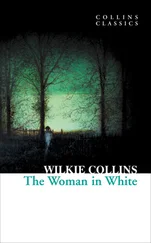Wilkie Collins - The Moonstone
Здесь есть возможность читать онлайн «Wilkie Collins - The Moonstone» — ознакомительный отрывок электронной книги совершенно бесплатно, а после прочтения отрывка купить полную версию. В некоторых случаях можно слушать аудио, скачать через торрент в формате fb2 и присутствует краткое содержание. Год выпуска: 2006, Жанр: Классическая проза, на английском языке. Описание произведения, (предисловие) а так же отзывы посетителей доступны на портале библиотеки ЛибКат.
- Название:The Moonstone
- Автор:
- Жанр:
- Год:2006
- ISBN:нет данных
- Рейтинг книги:4 / 5. Голосов: 1
-
Избранное:Добавить в избранное
- Отзывы:
-
Ваша оценка:
- 80
- 1
- 2
- 3
- 4
- 5
The Moonstone: краткое содержание, описание и аннотация
Предлагаем к чтению аннотацию, описание, краткое содержание или предисловие (зависит от того, что написал сам автор книги «The Moonstone»). Если вы не нашли необходимую информацию о книге — напишите в комментариях, мы постараемся отыскать её.
The Moonstone — читать онлайн ознакомительный отрывок
Ниже представлен текст книги, разбитый по страницам. Система сохранения места последней прочитанной страницы, позволяет с удобством читать онлайн бесплатно книгу «The Moonstone», без необходимости каждый раз заново искать на чём Вы остановились. Поставьте закладку, и сможете в любой момент перейти на страницу, на которой закончили чтение.
Интервал:
Закладка:
It was now ten minutes past one. I heard, through the dead silence, the soft drip of the rain and the tremulous passage of the night air through the trees.
After waiting irresolute, for a minute or more, in the middle of the room, he moved to the corner near the window, where the Indian cabinet stood.
He put his candle on the top of the cabinet. He opened, and shut, one drawer after another, until he came to the drawer in which the mock Diamond was put. He looked into the drawer for a moment. Then he took the mock Diamond out with his right hand. With the other hand, he took the candle from the top of the cabinet.
He walked back a few steps towards the middle of the room, and stood still again.
Thus far, he had exactly repeated what he had done on the birthday night. Would his next proceeding be the same as the proceeding of last year? Would he leave the room? Would he go back now, as I believed he had gone back then, to his bed-chamber? Would he show us what he had done with the Diamond, when he had returned to his own room?
His first action, when he moved once more, proved to be an action which he had not performed, when he was under the influence of the opium for the first time. He put the candle down on a table, and wandered on a little towards the farther end of the room. There was a sofa there. He leaned heavily on the back of it, with his left hand—then roused himself, and returned to the middle of the room. I could now see his eyes. They were getting dull and heavy; the glitter in them was fast dying out.
The suspense of the moment proved too much for Miss Verinder’s self-control. She advanced a few steps—then stopped again. Mr. Bruff and Betteredge looked across the open doorway at me for the first time. The prevision of a coming disappointment was impressing itself on their minds as well as on mine.
Still, so long as he stood where he was, there was hope. We waited, in unutterable expectation, to see what would happen next.
The next event was decisive. He let the mock Diamond drop out of his hand.
It fell on the floor, before the doorway—plainly visible to him, and to everyone. He made no effort to pick it up: he looked down at it vacantly, and, as he looked, his head sank on his breast. He staggered—roused himself for an instant—walked back unsteadily to the sofa—and sat down on it. He made a last effort; he tried to rise, and sank back. His head fell on the sofa cushions. It was then twenty-five minutes past one o’clock. Before I had put my watch back in my pocket, he was asleep.
It was all over now. The sedative influence had got him; the experiment was at an end.
I entered the room, telling Mr. Bruff and Betteredge that they might follow me. There was no fear of disturbing him. We were free to move and speak.
“The first thing to settle,” I said, “is the question of what we are to do with him. He will probably sleep for the next six or seven hours, at least. It is some distance to carry him back to his own room. When I was younger, I could have done it alone. But my health and strength are not what they were—I am afraid I must ask you to help me.”
Before they could answer, Miss Verinder called to me softly. She met me at the door of her room, with a light shawl, and with the counterpane from her own bed.
“Do you mean to watch him while he sleeps?” she asked.
“Yes, I am not sure enough of the action of the opium in his case to be willing to leave him alone.”
She handed me the shawl and the counterpane.
“Why should you disturb him?” she whispered. “Make his bed on the sofa. I can shut my door, and keep in my room.”
It was infinitely the simplest and the safest way of disposing of him for the night. I mentioned the suggestion to Mr. Bruff and Betteredge—who both approved of my adopting it. In five minutes I had laid him comfortably on the sofa, and had covered him lightly with the counterpane and the shawl. Miss Verinder wished us good night, and closed the door. At my request, we three then drew round the table in the middle of the room, on which the candle was still burning, and on which writing materials were placed.
“Before we separate,” I began, “I have a word to say about the experiment which has been tried to-night. Two distinct objects were to be gained by it. The first of these objects was to prove, that Mr. Blake entered this room, and took the Diamond, last year, acting unconsciously and irresponsibly, under the influence of opium. After what you have both seen, are you both satisfied, so far?”
They answered me in the affirmative, without a moment’s hesitation.
“The second object,” I went on, “was to discover what he did with the Diamond, after he was seen by Miss Verinder to leave her sitting-room with the jewel in his hand, on the birthday night. The gaining of this object depended, of course, on his still continuing exactly to repeat his proceedings of last year. He has failed to do that; and the purpose of the experiment is defeated accordingly. I can’t assert that I am not disappointed at the result—but I can honestly say that I am not surprised by it. I told Mr. Blake from the first, that our complete success in this matter depended on our completely reproducing in him the physical and moral conditions of last year—and I warned him that this was the next thing to a downright impossibility. We have only partially reproduced the conditions, and the experiment has been only partially successful in consequence. It is also possible that I may have administered too large a dose of laudanum. But I myself look upon the first reason that I have given, as the true reason why we have to lament a failure, as well as to rejoice over a success.”
After saying those words, I put the writing materials before Mr. Bruff, and asked him if he had any objection—before we separated for the night—to draw out, and sign, a plain statement of what he had seen. He at once took the pen, and produced the statement with the fluent readiness of a practised hand.
“I owe you this,” he said, signing the paper, “as some atonement for what passed between us earlier in the evening. I beg your pardon, Mr. Jennings, for having doubted you. You have done Franklin Blake an inestimable service. In our legal phrase, you have proved your case.”
Betteredge’s apology was characteristic of the man.
“Mr. Jennings,” he said, “when you read ROBINSON CRUSOE again (which I strongly recommend you to do), you will find that he never scruples to acknowledge it, when he turns out to have been in the wrong. Please to consider me, sir, as doing what Robinson Crusoe did, on the present occasion.” With those words he signed the paper in his turn.
Mr. Bruff took me aside, as we rose from the table.
“One word about the Diamond,” he said. “Your theory is that Franklin Blake hid the Moonstone in his room. My theory is, that the Moonstone is in the possession of Mr. Luker’s bankers in London. We won’t dispute which of us is right. We will only ask, which of us is in a position to put his theory to the test?”
“The test, in my case,” I answered, “has been tried to-night, and has failed.”
“The test, in my case,” rejoined Mr. Bruff, “is still in process of trial. For the last two days I have had a watch set for Mr. Luker at the bank; and I shall cause that watch to be continued until the last day of the month. I know that he must take the Diamond himself out of his bankers’ hands—and I am acting on the chance that the person who has pledged the Diamond may force him to do this by redeeming the pledge. In that case I may be able to lay my hand on the person. If I succeed, I clear up the mystery, exactly at the point where the mystery baffles us now! Do you admit that, so far?”
I admitted it readily.
Читать дальшеИнтервал:
Закладка:
Похожие книги на «The Moonstone»
Представляем Вашему вниманию похожие книги на «The Moonstone» списком для выбора. Мы отобрали схожую по названию и смыслу литературу в надежде предоставить читателям больше вариантов отыскать новые, интересные, ещё непрочитанные произведения.
Обсуждение, отзывы о книге «The Moonstone» и просто собственные мнения читателей. Оставьте ваши комментарии, напишите, что Вы думаете о произведении, его смысле или главных героях. Укажите что конкретно понравилось, а что нет, и почему Вы так считаете.




